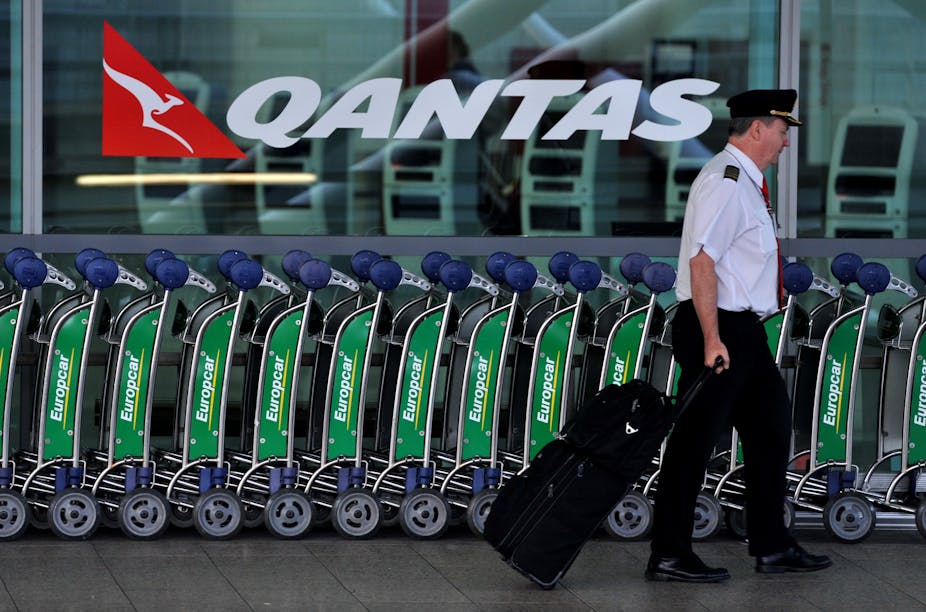The stakes are high for both the union movement and Qantas, as a Fairwork Australia hearing aimed at ending the industrial crisis which has grounded Qantas planes continues this evening.
Qantas wants Fairwork Australia to order the termination of industrial action rather than a suspension, which Mr Joyce claims is not enough to get the fleet back in the air.
In an extraordinary move on Saturday Qantas grounded its planes following months of industrial action from unions and informed staff they will be locked out from Monday at 8pm.
The Federal government responded by asking Fairwork Australia to intervene on the industrial action.
Qantas chief executive Alan Joyce has said Qantas acted on Saturday following the company’s Annual General Meeting where the company’s directors were overwhelmingly endorsed by shareholders.
The Conversation has asked business and industrial relations expert to comment on the situation:
Deborah Edwards, Senior research fellow, University of Technology, Sydney
The current actions by Qantas to ground its fleet will present issues for Qantas for a significant time.
Apart from the immediate losses Qantas is incurring from this decision, expect to see their market share decrease as customers defect to other airlines. The brand will be impacted particularly as their world airline ranking has been slipping since 2005 (second), 2010 (seventh).
It also presents a very rich opportunity to Qantas competitors, in particular Virgin Australia (VA) which is currently expanding into the business market (a lucrative market for airlines as it is repeat business).
Expect to see some creative strategies by VA to take advantage of the situation and assist them to increase their market share. I wouldn’t be surprised to see emerging tactics such as a points for points deals offered by other airlines to take advantage of the dissatisfaction that customers will have with Qantas.
The action will have impacts on the small to medium tourism firms that make up a majority of the Australian tourism industry; an industry that has had difficulty coping with an increasing number of domestic tourists choosing to holiday overseas.
A number of these firms are still recovering from the natural disasters experienced earlier this year. Decrease in turnover in the short term will be the most immediate impact and as these firms often have tight cash flows the impact can be significant. Indirect suppliers will in turn be impacted such as, food and beverage services, cleaning and laundering services, ground transport, car hire etc.
The size of the impact to the tourism industry will depend on the length of the dispute. The image in the minds of people interested in visiting Australia should remain the same however their choice of carrier will change. These direct and indirect impacts are often not conisdered during these disputes.
The industrial dispute also has indirect impacts on the aviation sector as it affects those firms who supply food, beverages and in flight service materials for qantas.
The aviation sector is a highly competitive industry both nationally and internationally. The current crisis will probably see a decrease in Qantas’ international market share as well. How Qantas works through the ensuing challenges will be critical to its future as an airline.

